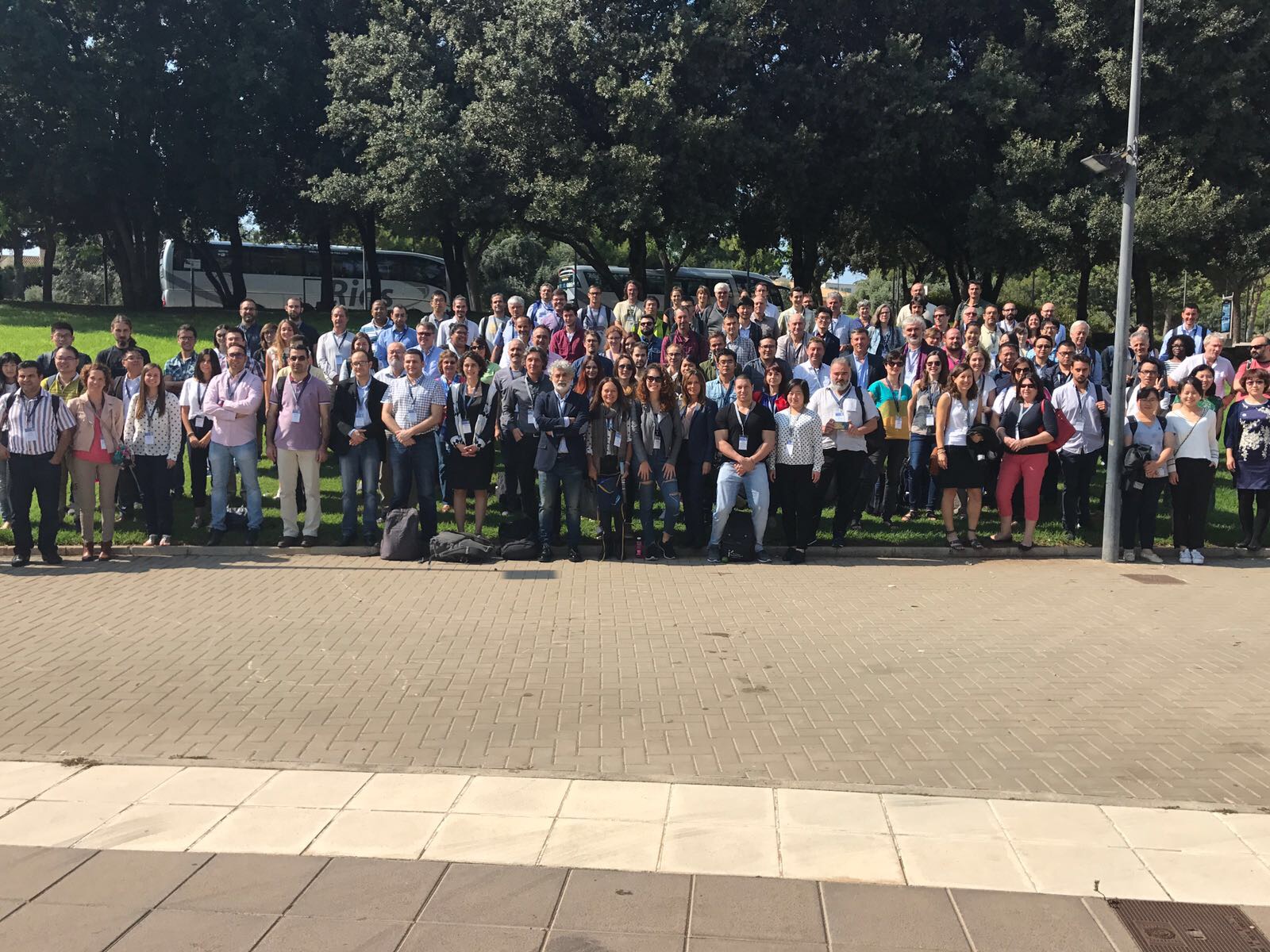The fifth edition of the International Symposium on Recent Advances in Quantitative Remote Sensing (RAQRS'V) was held in Valencia (Spain) on September 18th to 22nd, 2017. The symposium, organized by Jose Antonio Sobrino (University of Valencia) hosted five sessions including 60 oral presentations selected by the International Scientific Committee and 200 posters presented during interactive sessions. Five faculty members from the Department of Geographical Sciences, Dr. Jean-Claude Roger, Dr. Pierre Guillevic, Dr. Belen Franch (involved in the organizing committee), Dr. Eric Vermote (NASA GSFC and Adjunct faculty) and Dr. Jim Tucker (NASA GSFC and Adjunct faculty) attended the Symposium. During the opening ceremony an act in memoriam of Dr. Piers Sellers was held by Dr. Jim Tucker and Pedro Duque (Spanish astronaut and friend of Piers). The opening ceremony is available at the following link (starts at 20 minutes): https://www.youtube.com/watch?v=TlJXuPqN7o4
The goal of the Symposium was to assess the state of the art of both theory and applications in the analysis of remote sensing data. The presentations focused on advances and recent applications of the different research techniques and methods used in remote sensing, such as land surface radiation and inversion modelling; multispectral and hyperspectral remote sensing and imaging spectroscopy; multi-angular and multitemporal measurements; scaling, fusion, reduction and assimilation of data; advances in consolidated datasets of Essential Climate Variables (ECVs) and their impact arising from the Climate Change Initiative; Carbon and water cycle observation and modelling; land cover/use and change; global change and sustainable development; sensor calibration, atmospheric correction, and product validation; passive and actives microwaves & SAR data processing and applications; laser active remote sensing and fluorescence; close range remote sensing and Earth Observation missions & services.
This Symposium greatly contributed to define common research priorities and offered a unique framework for socializing and interacting with the members of the international remote sensing community, at the same time enjoying a stay in Valencia. Presentations by scientists from around the world provide an in-depth view and evaluation of the current advances of remote sensing.


